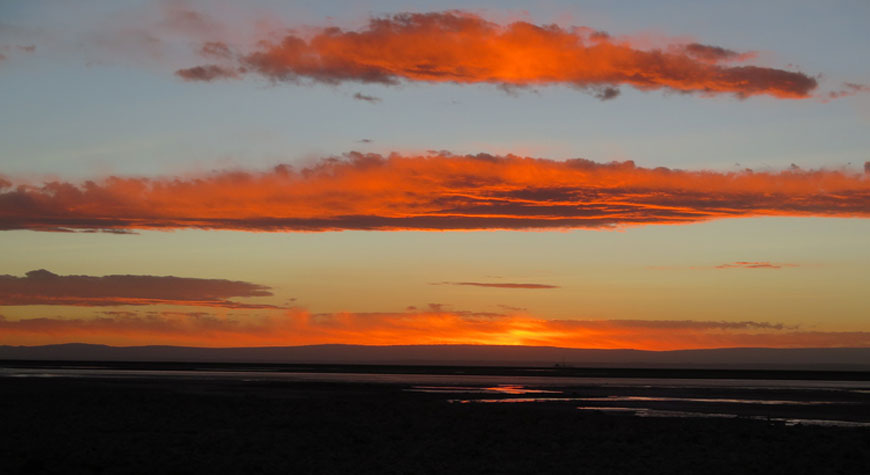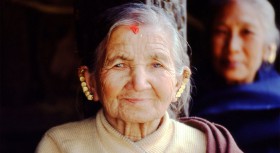It started a few years ago when I came across a photograph online of pink flamingos amidst a stunning desert sunset. I had no idea where this place was and had my doubts on whether the photograph was real at all (Photoshopped, maybe? Or so I thought).
I clicked on the photograph and the caption said it was taken at the Atacama desert in Chile. That started my fascination with this desert, which has been reinforced many times by the mind-blowing photographs of its unique landscapes I've encountered online.
The Atacama, I learned, is the driest place on earth, but it is also one of the most beautiful.
After years of yearning to go, I finally decided to pack my bags and embark on a trip to this seemingly unreal place.
It was the beginning of autumn in New York when I took an overnight flight from JFK to Santiago, Chile's capital. There I spent four days in spring weather and was introduced to Chilean culture, history, and cuisine. I had a lot of fun but was eager to see my pink flamingos and surreal sunsets.
A two-hour flight from Santiago took me to Calama airport. Another hour aboard a van led me to San Pedro de Atacama, the gateway to the Atacama.
San Pedro is situated in an oasis in the middle of the Atacama desert. It is small, sleepy and very dusty. The main street is for pedestrians only and is appropriately called Caracoles (Spanish for "snails").
A combination of atacameño establishments and tourist excursion agencies line this rustic street. San Pedro is the base for travelers to Atacama and from here, day trips are designed to unwrap the desert's various landscapes.
Within a couple of hours outside of this oasis, the Atacama desert paradoxically comes to life.
On my second day, I saw my pink flamingos wading in the Chaxa lagoon at the center of the Salar (salt flats) de Atacama. The Atacama salt deposits are very different from the more famous salt flats of Uyuni in Bolivia where the salt deposits lay flat and wet, like swimming pools, making it possible to provide spectacular reflections on its surface.

At Chaxa, the salt deposits are in the form of small, rough, contorted mounds of salt crystals; each mound looking as if it was yearning to reach the surface and breathe. Taken collectively, the salt mounds are stunning and their yellow colors at sunset provided a wonderful contrast to the rose-colored hue of the desert sky.
I witnessed the stillness of the deep blue altiplanic (high altitude) lakes of Miscanti and Miñeques at noon and the ghostly mist spewing from the geysers of Tatio at daybreak.
I even stripped to my swimming trunks in below freezing temperatures to take a dip in a hot spring 4,300 meters above sea level (The temperatures are as crazy as the landscapes; in one day trip, I wore the whole gamut of summer to winter garb).
I was mesmerized by the lunar-like terrain of the Valley of the Moon and was humbled as I viewed from its Mirador de Kari an inspiring sunset with pink and orange hues emblazoned in the clouds.
I hiked along the Guatin trail amidst centuries-old cacti and a refreshing river and was excited to see vicuñas running in the wild.
I had no words to muster for the otherworldly beauty and serenity of the Salar de Tara. Never before in my previous travels have I encountered so much natural beauty in one small area of land.
And along the way, I met local people and fellow travelers, who may have been in search of their own pink flamingos as well, and listened to their stories and shared with them my own.
In my search for pink flamingos and surreal sunsets, I encountered much, much more.
From that initial photograph of years ago, I now have my own set of photographs, both pixelated and otherwise, of this very special place on earth. And they are, no doubt, real and indelible as Atacama has become a part of me, just like the other places I've traveled to and the people I've met along the way, as I continue to travel and explore.
Oscar H. Purugganan is a developmental pediatrician practicing in New York City.
This story was first published in Rappler.com, a Manila-based social news network where stories inspire community engagement and digitally fuelled actions for social change.








Comments